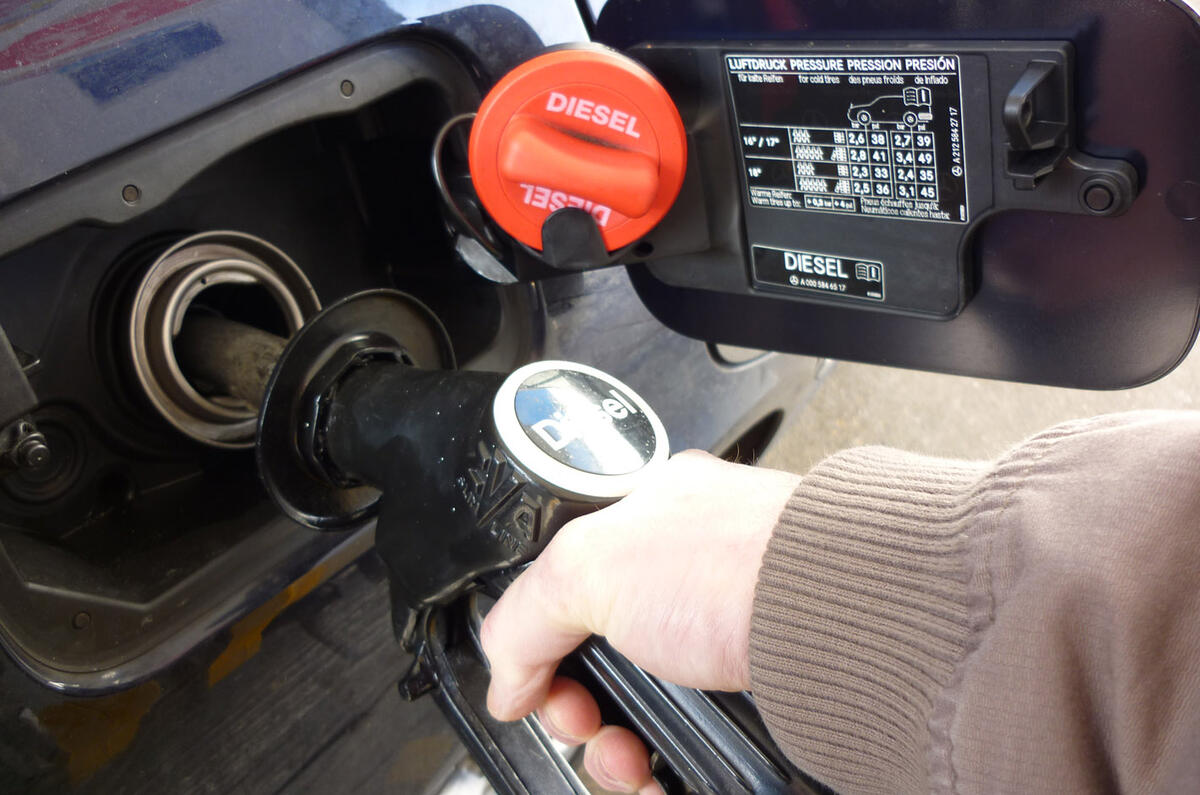The cost of a litre of diesel has hit £2 for the first time ever, as fuel prices continue to surge.
Data from the RAC shows that the average cost of diesel at a motorway service station is now 200.99p, with petrol prices currently at 197.18p.
Away from the motorways, the average cost of diesel sits at 188.82p – a rise of 4.5p this week – and petrol at 183.16p, a 7p rise in the same time.
Yesterday, the price to fill up a typical 55-litre family car, such as an Audi A3 or a BMW 3 Series, hit the £100 mark for the first time, sparking the AA to call on the government to cut fuel tax by a further 10p.
On Tuesday, the price of petrol rose by more than 2p in just 24 hours - the biggest daily increase in 17 years.
The latest rise has sparked an angry response from AA president Edmund King, who has demanded the government “act urgently” to reduce the record fuel prices, which are “crippling the lives of those on lower incomes, rural areas and businesses”.
He has also called on ministers to introduce a fuel price stabiliser, which would work by reducing fuel duty when prices go up and increasing it when prices drop.
King said: “A fuel price stabiliser is a fair means for the Treasury to help regulate the pump price but alongside this they need to bring in more fuel price transparency to stop the daily rip-offs at the pumps. The £100 tank is not sustainable with the general cost of living crisis so the underlying issues need to be addressed urgently.”
Meanwhile, RAC fuel expert Simon Williams labelled the fill-up rise a “truly dark day”, adding: “With average prices so high, there’s almost certainly going to be upward inflationary pressure, which is bad news for everybody.”
Earlier in the week, the RAC claimed the UK was on the brink of a fuel crisis. It called for urgent, “radical government intervention” to prevent a national fuel crisis.
“More radical government intervention is urgently needed, whether that’s in the form of a further reduction in fuel duty or a VAT cut,” Williams said on Monday.
“As it is, drivers surely won’t be able to cope unless something is done to help… This is fast becoming a national crisis for the country’s 32 million car drivers as well as countless businesses.”
This rise has been driven by the soaring costs of wholesale oil, but analysts predict the price of a barrel will average out at $135 (£107.66). It needs to reach $160 (£127.66) for petrol to hit £2 per litre.
Sanctions on Russia following its invasion of neighbouring Ukraine have also heavily contributed to rising fuel costs. Russia is one of the biggest producers of oil in the world and it supplied 18% of the UK’s diesel fuel last year.
This coupled with a weak pound and large post-Covid worldwide demand has caused prices to skyrocket. However, the wholesale price of petrol dropped yesterday by 5p, sparking hope of prices levelling out.








Join the debate
Add your comment
Fuel prices has a direct effect on many business's.
Families will reduce car usage to essential trips ...supermarket, commuting etc. Trips to the seaside during these summer months and theme parks will be curtailed to reduce spending.
This reduces spending at many establishments on the periphery as well....Restaurants, Pubs, tearooms, ice cream shops etc will all suffer and yes- fuel use will go down too, at a time of year when families usually go out and spend more.
I dont see how this benefits business's as a whole, or the government who rely on spending tax take.
People have a finite amount to spend....If all their money is going on energy and fuel bills, then right now they definitely cant afford to 'save' or plan for their retirement, let alone go out and keep the 'commercial machine' churning. Knocking 10p off the cost of fuel is pointless, we need to get back to £1.30 a litre where we were a short time ago to make a difference - its not as though we are short of oil globally, it is just controlled by a cartel which has to stop....I thought cartels were supposed to be illegal anyway!
Very short sighted of our fiscal masters
Earlier in the week, the RAC claimed the UK was on the brink of a fuel crisis. It called for urgent, “radical government intervention” to prevent a national fuel crisis.
This is the typical type of comment I'm reading at the moment in that you'd be forgiven to believe this problem is peculiar to the UK.
Just incase anyone hasn't realised it yet, the same problem exists almost everywhere in the world - including the EU. In fact shock horror, some EU countries are paying even more than us for their fuel.
Fuel is cheaper in the USA, last year the average was around $3 a gallon. Today it's almost $5 a gallon. Relatively speaking then, the increase is as bad if not worse in the USA.
We all know what's going to happen, if our gov cut fuel duty or VAT, the petrol companies are just going to increase the price even more. The cost of a barrel of crude is nowhere near it's highest price, exchange rates with the dollar is nowhere near their lowest - prices are being set by how much the fuel companies can get away with. Petrol maybe £1.80 a gallon and diesel £1.90 odd, but each time I pass a filling station, there's a queue of cars.
If the RAC want to bring the price down, the call should be to stop using the stuff.